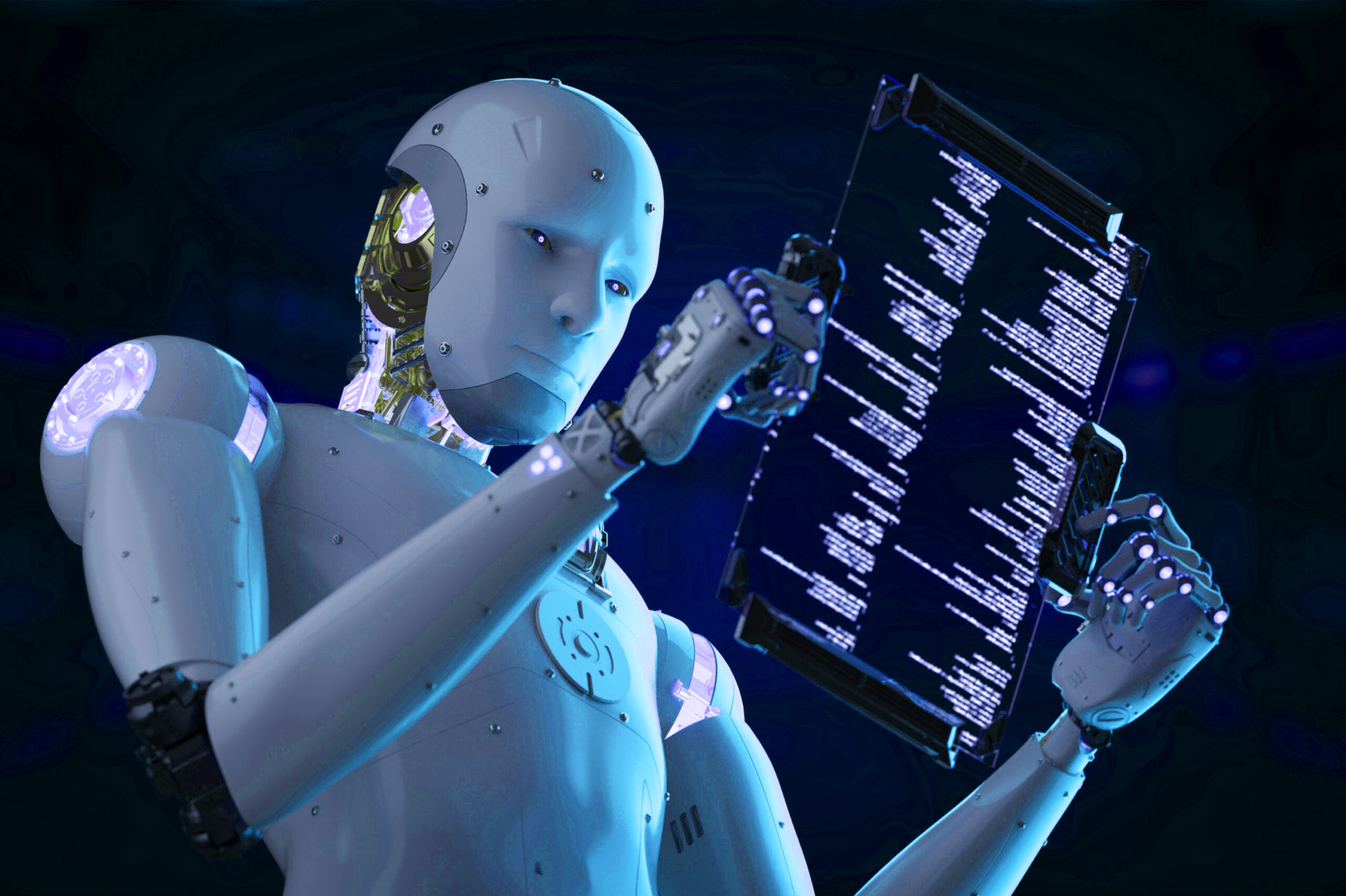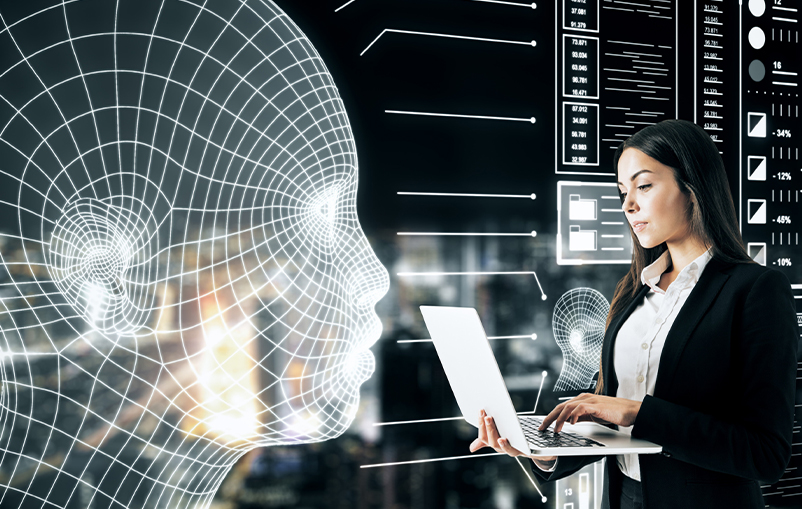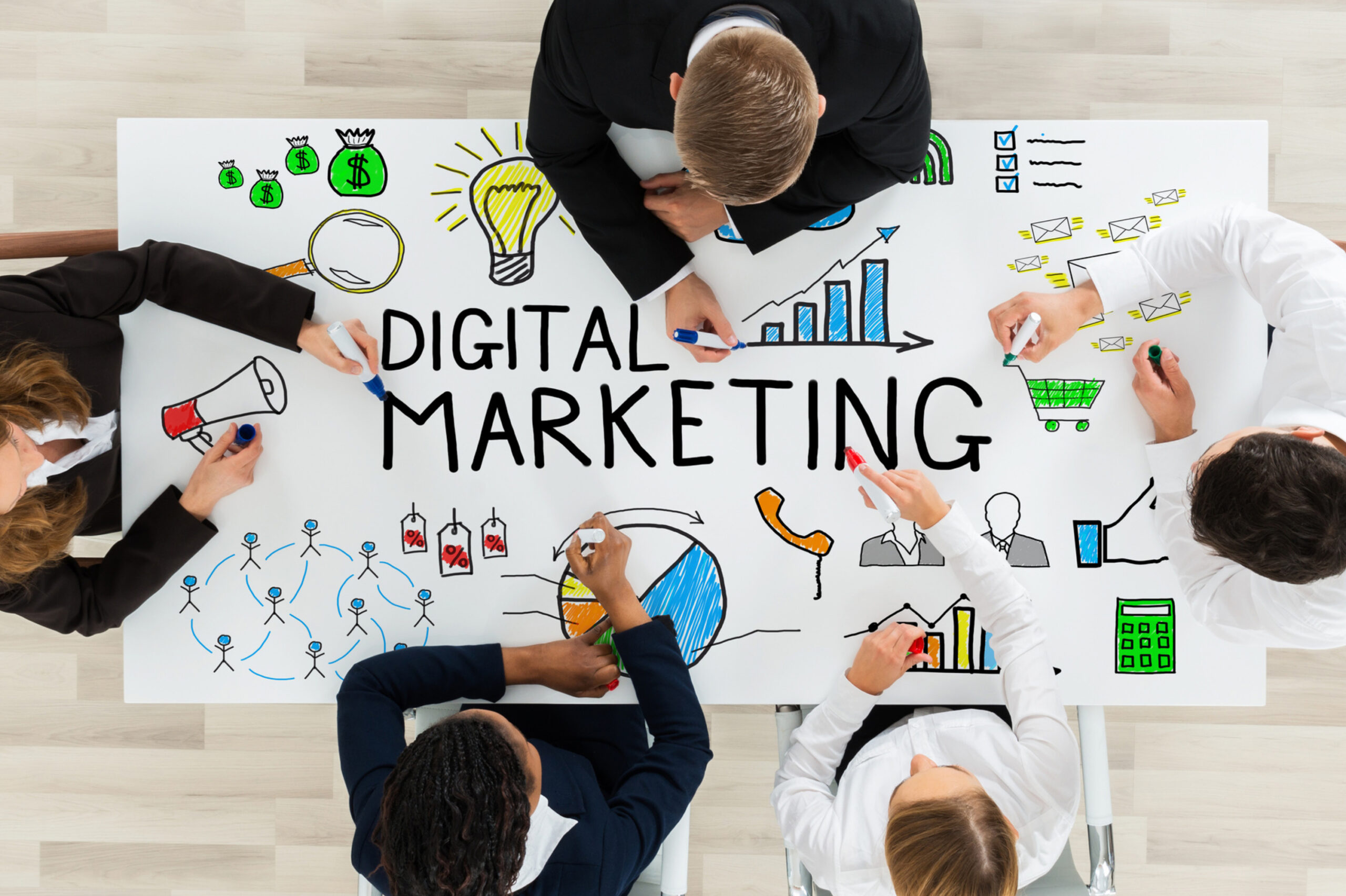The Rise of Artificial Intelligence in Digital Marketing: Revolutionizing the Landscape
chawlaaman7058
April 18, 2024

In this ever-changing digital marketing landscape, the winners tend to remain on top of the wave whereas the survivors tend to emerge from a great position inside the competitive landscape. As innovation proceeds to evolve and accelerate at an amazing rate, one innovation can be said to reshape the digital marketing landscape: artificial intelligence, or AI. Encompassing everything from personalized client experiences to predictive analytics, AI is reshaping the way businesses engage with their audience, optimize campaigns, and achieve results. In this blog, we’ll take a closer look at the rise of artificial intelligence in the field of digital marketing and how it’s changing the industry.
What is Artificial Intelligence in Digital Marketing?
Artificial intelligence is the recreation of human intelligence processes by machines, specifically computer frameworks. In other words, AI is the ability of machines to analyze, learn, and make independent choices. In terms of digital marketing, AI might allude to a wide assortment of technologies and techniques, from machine learning algorithms to natural language processing to predictive analytics. All these AI-based devices are able to prepare huge amounts of data and extracting information that can be used to guide marketing strategies and tactics.
Personal Customer Experience
One of the most critical opportunities with AI in digital marketing is the delivery of personalized experience at scale. With the help of customer data—such as browsing behavior, purchase history, and demographics—AI algorithms are able to segment audiences into highly-targeted groups and deliver personalized content and offers based on the individual’s preferences and interests. Personalized product recommendations and dynamic email content, customized website experiences: AI-driven personalization engages the user, builds dependability, and drives conversions.
Predictive Analytics for Campaign Optimization
Another area of impact that AI is making in the world of digital marketing is predictive analytics. With AI algorithms, it can analyze historical data, extracting all the patterns and trends concealed in it, and predict future results and behaviors with unimaginable accuracy. In marketing, predictive analytics empowers businesses to anticipate customer needs, predict campaign performance, and optimize marketing strategies in real-time. Whether it is almost churn prediction, finding high-value leads, or optimizing ad targeting, predictive analytics enables marketers to make data-driven decisions that have tangible outcomes.
Chatbots and Conversational Marketing
Emerging AI-based chatbots bring approximately a worldview shift in how businesses interact with their clients online. The intelligent virtual assistants are able to engage with the users in real-time, replying their questions and providing any assistance required and going all the way to encourage transactions. Profoundly suited with natural language processing and machine learning capabilities, chatbots offer personalized and relevantly important encounters, hence driving more customer satisfaction and retention. Deployed on websites, social media platforms, or messaging apps, chatbots are essentially becoming the “go-to” apparatus for businesses that wish to scale their customer support and enhance the overall customer experience.
Improved Ad Targeting and Optimization
AI is moreover changing the face of business when it comes to advertising, particularly in the domain of ad targeting and optimization. AI-powered advertising platforms use advanced algorithms to analyze user behavior, inclinations, and intuition in real-time, thereby allowing advertisers to target their ads with unprecedented precision. Be it refining bids, adjusting audience targeting, or indeed creating personalized ad creatives, AI-driven advertising algorithms are constantly learning and adapting to maximize the performance of a campaign and the return on investment.
Examples of AI in Digital Marketing

Alexis Ouellet – CEO Kitpapa
- Machine Learning:
The machine learning algorithms will allow computers to learn from data and make predictions or decisions without being explicitly programmed. In digital marketing, machine learning is utilized to create predictive analytics, customer segmentation, and content personalization.
Predictive Analytics: Netflix uses machine learning algorithms to analyze users’ viewing behavior and predict what the user will be interested in watching, by creating recommendations for the user.
Customer Segmentation: E-commerce companies like Amazon utilize machine learning to segment customers based on their purchase history and browsing behavior, thereby facilitating focused marketing.
- Natural Language Processing (NLP):
NLP will allow computers to understand, interpret, and create human language. In digital marketing, NLP powers chatbots, sentiment analysis, and content optimization for search engines.
Chatbots: Many companies use chatbots run by NLP to offer customer support and help. For example, customer service chatbots on websites can recognize client questions and return supportive answers in common language.
Content Optimization: Search engines like Google use NLP algorithms to understand the content’s context and relevance and to rank web pages based on search queries.
- Predictive Analytics:
Predictive analytics algorithms predict future outcomes based on historical data. In digital marketing, predictive analytics is utilized for predicting customer behavior, identifying trends, and optimizing marketing campaigns.
Customer Behavior Forecasting: Retailers use predictive analytics to predict customer demand for certain products, which helps them optimize the inventory levels and plan marketing promotions.
Campaign Performance Forecasting: Marketing agencies use predictive analytics to predict the campaign performance, consequently permit them to distribute the budget effectively and maximize ROI.
- Computer Vision:
Computer vision algorithms permit computers to understand and process visual information from pictures and videos. In digital marketing, computer vision is used in image recognition, visual search, and content moderation.
Image Recognition: Social media platforms like Facebook utilize computer vision to recognize individuals automatically in photos, hence recognizing faces and objects within images.
Visual Search: Online retailers like Pinterest and Google Images use computer vision to enable clients to look for products using pictures, not textual queries.
- Deep Learning
Deep learning is a subset of machine learning, which employs a pattern of artificial neural networks for modeling and handling the information. Digital marketing uses profound learning for image, speech recognition, recommendation systems, and normal language understanding.
Speech Recognition
Voice assistants such as Siri and Alexa employ deep learning algorithms to comprehend and respond to spoken commands that allow hands-free interaction with devices.
Recommendation Systems
Streaming services such as Spotify and YouTube are used to analyze user preferences deep learning, and accordingly, it recommends a personalized list of playlists or videos.
Conclusion
AI integrated in digital marketing marks a milestone in how businesses engage with their audience, optimize campaigns, and derive tangible results. Companies using AI-powered technologies and strategies can offer personalized experiences, predict their customers’ needs, and make data-driven decisions that would drive tangible results. With AI evolving, the role will become more prominent in advanced marketing, as well as will open up new opportunities for innovation and growth in a competitive environment.
With the transformative potential of AI in digital marketing, businesses that embrace this technology will position themselves for long-term success, while those that lag behind may struggle to keep pace with advancing customer expectations and market dynamics. As we embark on this journey into the AI-driven future of digital marketing, one thing is certain: the possibilities are endless, and the opportunities for development are limitless.


